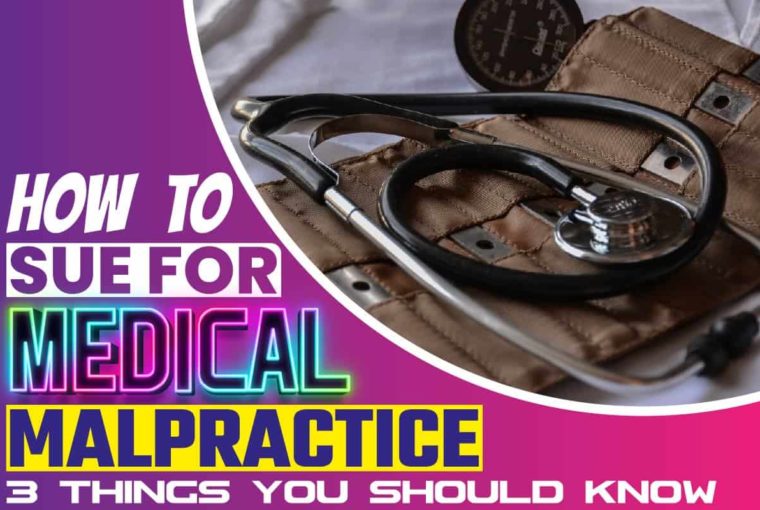No one wants to go through a bad experience with their doctor, but if it happens, you must know how to protect your rights. However, before you think about legal options, it’s important to understand the term “medical malpractice” (sadly, many patients don’t quite grasp the difference between their feelings and a real situation of misconduct or mistake in the medical world).
According to state laws (which differ from state to state), a medical malpractice case is valid when a patient has been harmed or injured by a medical provider (doctor, technician, nurse, or even medical worker). Additionally, you can also sue for medical malpractice in the case of a mistaken diagnosis due to improper handling of your analysis or data.
While most healthcare providers out there aim to help and improve the health of their patients, there are times when things go wrong. In fact, if we follow the statistics, around 41% of Americans believe a medical error was made in their care. However, despite this shockingly high number of people who believe a medical provider has wronged them, only 1% of cases end up in a lawsuit.
The main reason behind the low number of medical malpractice lawsuits stands in the fact that patients don’t have the necessary knowledge to pursue this path. Moreover, many people believe a lawsuit would be too expensive for their budget and avoid going down that road.
So, if you or a loved one or acquaintance have suffered from a medical worker’s negligence or poor skills, here are the things you should know for pursuing a medical malpractice lawsuit.
#1: Get Help From A Legal Professional
A medical malpractice legal professional can help you understand if you have a viable case or not. Moreover, they can help establish the type of malpractice and the steps to follow if it turns out you were indeed mistreated.
For instance, there are states that require patients to file a so-called certificate of merit. This is a medical assessment designed to establish that your injuries or discomfort were caused by the negligence of a healthcare professional. For this to be valid, it has to be performed by a specialized professional and your lawyer will know how to find the right one.
Quick tip: It’s best to get in contact with a legal professional as soon as possible (after you believe a case of malpractice occurred) since each state has different statutes of limitation for such situations.
#2: Gather Your Evidence
Your legal representative will ask about evidence. Otherwise, regardless of the situation, it will be very difficult to build a valid case.
But what exactly can be used as evidence?
In most cases, there will be a paper trail (forms you were required to fill at the doctor’s office, receipts, emails, and so on) to establish the doctor-patient relationship. You should also receive a prescription (if the situation pertains to treatment) or at least a medical chart specifying your diagnosis. All these can be used as evidence to prove the relationship existed and the mistakes the medical practitioner allegedly made.
Additionally, once you get the certificate of merit mentioned above, you have the opinion of a medical expert (which weighs heavily in a legal confrontation).
In summary, whenever you go to a doctor, make sure to get copies of all the papers and save all electronic communications. You never know when they may be useful.
#3: Know Who To Sue
In order to get the right compensation, you need to find the right person or entity against which to make your claim. In some cases, you may sue the doctor who wronged you, but in other cases, you may have to sue the hospital or even the healthcare system.
After you go through all these steps, it makes sense that so few malpractice cases actually reach a court of law. Therefore, it’s best to learn how to find a proper health specialist for your needs rather than try to get them to compensate you for their mistakes. Still, if you’ve been wronged, don’t let the complexity of the system intimidate you!




